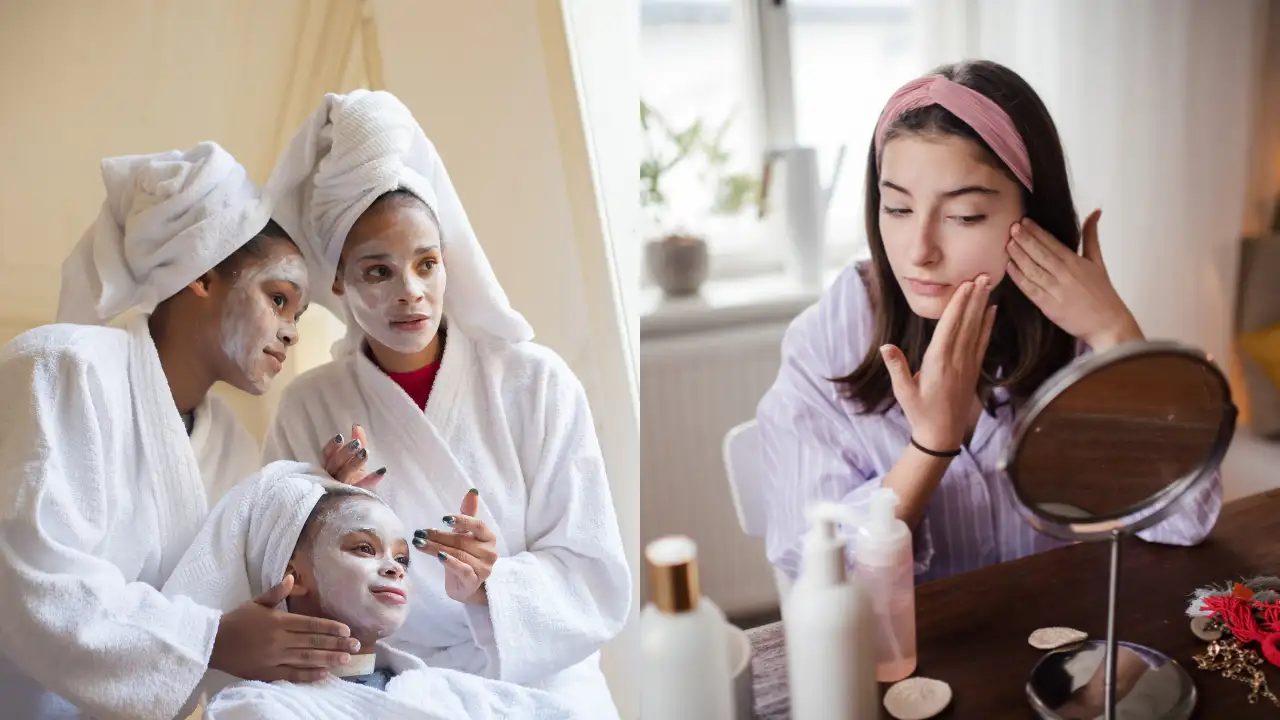Walk into any cosmetic store today, and you might do a double take: that 11-year-old comparing blush shades is not shopping for her mother. She is the customer. Dr. Sonali Kohli, a dermatologist and recent guest on The Luke Coutinho Show, finds this trend not just surprising but genuinely worrying.
Here is why: a child’s skin is not just smaller adult skin. It is fundamentally different. Dr. Kohli explains that the outermost layer of a child’s skin, the stratum corneum, is about 30 percent thinner than that of an adult. That means it is more vulnerable, more absorbent and far more prone to damage from the very ingredients packed into many adult beauty products.
Why Parents Should Not Be Okay With Kids Using Their Products
It does not stop there. A child’s skin naturally regenerates at a brisk pace, 30 to 40 percent faster than grown-up skin, which is why kids often have that enviable plump, dewy glow that adults try to replicate with expensive serums. “Their oil glands are relatively inactive and hormone levels are low, making their skin balanced and calm—until, of course, it is introduced to harsh exfoliants, chemical-laden make-up, and overzealous skincare routines,” she says.
“Using these adult products too early disrupts that delicate balance,” Dr. Kohli warns. “You are not just exposing them to ingredients they do not need; you are actually training the skin to become reactive and hypersensitive as it grows.” Essentially, you are teaching the skin to panic.
And what happens when you scrub away at a barrier that was not built to handle acids, scrubs and heavy makeup? You lose what Dr. Kohli calls the "essential water barrier," a kind of invisible protective shield that locks in moisture and keeps external aggressors out. Strip it away, and you are left with dry, irritable, breakout-prone skin, years before puberty even kicks in.
Growing Up, It Is Completely Fine To Have Pimples
But this conversation is not just skin deep. Dr. Kohli is quick to point out that overexposure to skincare culture at a young age risks something more insidious: a warping of self-worth.
“We are not just setting the foundation wrong for the skin; we are doing it for the psyche, too. When a child is told—whether directly or through the silent rituals of skincare—that they need a product to ‘fix’ their face, they start scanning the mirror not for beauty but for flaws,” she remarks.
Remember the teenage years of pimples, bad haircuts, and fashion mishaps? We survived. "We lived around the pimple," says Dr. Kohli. "Today, kids live for the pimple." She shares that many young children would not even leave the house with a blemish visible. Why? Because they have seen their parents do the same—cancelling plans or layering on concealer at the first sign of a spot.
What Parents Need To Understand
Parents need to draw the line between hygiene and vanity. Clean skin is important. But so is letting a child grow up without the pressure to perfect their face before they have finished growing it.
So, before you hand your preteen that retinol or clay mask, stop. Their skin is already doing everything it needs to. Let it breathe. Let them be kids. And perhaps, just perhaps, teach them that real self-care starts by accepting the skin they are in.
